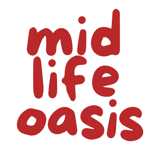What Alcohol Does to Your Brain: A Middle-Aged Perspective
This article explores the impact of alcohol on middle-aged health. It debunks myths about stress relief, highlights addiction risks, and examines its effects on brain function, citing Dr. Daniel Amen. While moderate drinking has some benefits, setting limits and gracefully handling social pressure are key to a healthier, mindful lifestyle.
1/20/20253 min read


21st Century Image of Alcohol and Smoking
Growing up in the late 20th century, many of us were bombarded with images of glamorous actors puffing on cigarettes and sipping cocktails. Smoking and drinking were symbols of sophistication and rebellion. Fast forward to today, and smoking has largely lost its sheen, with bans in public places and declining numbers of smokers. But what about alcohol? Confronted with its omnipresence, the cultural perception of alcohol has changed. Health promotions highlight its risks, and many middle-aged individuals begin to question whether a glass of wine will harm or help their heart.
Social Pressure and Alcohol
Can you think of times when you had a drink simply because others around you were drinking? You're not alone. It follows from here that many people drink only in social settings due to some kind of perceived pressure. Research at the University of Sheffield discovered that social drinking can be associated with the fear of being different or boring. The irony? Most of us would actually much rather not have the drink at all if the unwritten rule of "healthy peer pressure" encourages sparkling water over a glass of Chardonnay.
The Addictive Element of Alcohol
Like chocolate or caffeine, the pull of alcohol is real and may result in dependency. It comes from the interaction with the brain's reward system. When you drink, the brain releases dopamine-the feel-good chemical-which is responsible for making you feel so relaxed and euphoric. But over time, the brain becomes accustomed to this flood of dopamine, and it takes more and more alcohol to produce the same effect. That's when the addiction begins-really a slippery slope. It's not just psychological; it's chemical.
What Alcohol Does to Your Brain
Let's bust the common myth now: alcohol doesn't "reduce" stress; it simply numbs your response to it. When you drink, alcohol impacts that prefrontal cortex of the brain-a part of the brain responsible for decision-making and impulse control. That is probably why you might feel uninhibited after a drink or two. Long-term, it shrinks this part of the brain, which impairs memory and cognitive function.
As Dr. Daniel Amen, one of the more famous psychiatrists and authorities on brain health, explained, "Alcohol is not a health food. It lowers activity in the brain's frontal lobes, which are critical for focus, judgment, and impulse control. Over time, it can lead to cognitive decline and raise the risk of depression." This is supported by a 2022 study appearing in Nature Communications that demonstrated even moderate drinking could hasten brain aging through gray matter.
But worse, alcohol interferes with neurotransmitters, further giving way to mood swings and increasing anxiety-the very feelings many of us were trying to resolve. Next time you reach for that glass after a day full of tension, consider if it is truly alleviating your burden or just deferring it.
Are There Any Benefits to Alcohol?
Well, before you dump that wine, let's review the upsides. For one, red wine is often vaunted for its resveratrol content-an antioxidant said to be good for the heart. And indeed, a number of studies have found that moderate wine consumption can have beneficial effects on cardiovascular function. The rub: "moderate" means a glass a day for women and two for men-and it doesn't give you carte blanche to polish off the bottle. Other purported benefits, from digestion to making one convivial, are less clearly supported by science and are invariably outweighed by the risks associated with alcohol.
Knowing Your Limits
There's no one-size-fits-all approach when taking alcohol. Genetics, age, and overall health are important factors in how alcohol affects someone. What's reasonable for one may be too much for another, making that individual feel sick or out of control. The key is to be mindful: When you drink, relish it; quality over quantity, any time, and your body will thank you for listening. And know this-it's okay, really okay, to say no. No one's health ever suffered from having sparkling water at a party.
Final Sip of Wisdom
As middle-aged health enthusiasts, it is time for us to reassess our relationship with alcohol. What might be a pleasurable part of life can no longer be viewed as the glamorous elixir of our youth. We can still enjoy an occasional drink without sacrificing our long-term health-if we do so with knowledge and balance.
The best way to handle social pressure? Use light-hearted humor or subtle deflection. For example, say, "I’m trying to be the designated storyteller tonight," or "I’ve already hit my drink quota for the week." Offering a non-alcoholic alternative can also help shift the focus. Remember, a confident smile and a clear "no, thanks" often do the trick—your well-being is always worth it. Cheers to mindful living and a healthier future!
